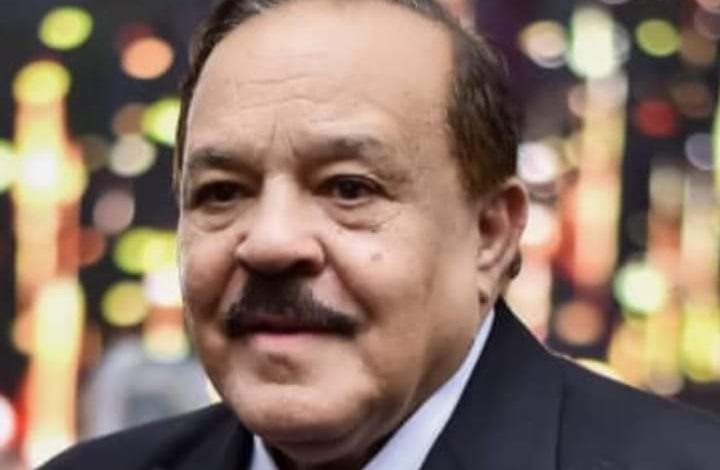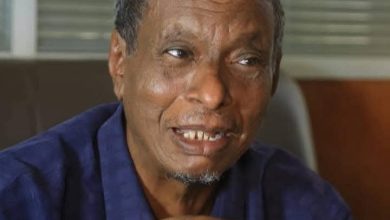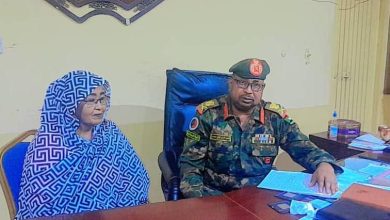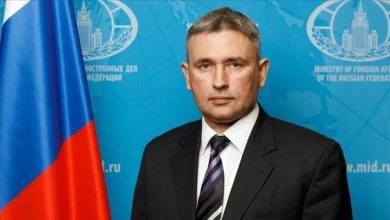The Sudanese Foreign Minister in an interview: Erdogan’s mediation between Sudan and the UAE is “promising and positive.”
We are open to ending the war under two conditions: that there be one army for Sudan and that the leaders of the "Rapid Support Forces" have no political role

Al-Sharif added in an interview with (Anadolu): “In this war, we found understanding from the Turkish leadership regarding the situation in Sudan, and the issues related to the war were discussed very closely.”
Al-Sharif added that “Turkey, under the leadership of President Erdogan, took a generous and great stance with the Sudanese people and the Sudanese state, and was clear in all its positions, supporting the sovereignty of the Sudanese state and preserving its resources.”
He emphasized that Sudan and its people have “strong, close, and historical” relations with Turkey, both government and people.
He continued, “The latest initiative proposed by President Erdoğan is the offer of mediation between Sudan and the UAE, and this initiative will have a positive impact on Sudan, its government, people, and leadership.”
Condition for returning to Jeddah
According to Al-Sharif, the Turkish initiative is not alone; there is also the Jeddah Platform (between the army and the Rapid Support Forces), which is focused on humanitarian aspects and made decisions in May 2023.
He added: “However, the rebel militia (Rapid Support Forces) did not adhere to the outcomes of Jeddah.” (..) And there will be no return to the Jeddah track except with the militia’s implementation of its outcomes, foremost of which is the withdrawal from the sites it occupies.
The Jeddah Agreement stipulated the protection of civilians and the withdrawal from civilian sites, in addition to announcing more than one truce during which violations occurred and both parties exchanged accusations, prompting Riyadh and Washington to suspend negotiations.
Great victories
Regarding the ground battles, Al-Sharif emphasized that the Sudanese army is achieving significant “victories” these days in the “Battle of Dignity,” referring to the war against the “Rapid Support Forces.”
He said, “This is happening through the great efforts of the state, which has faced a major conspiracy since April 15, 2023…” A conspiracy targeting the identity of Sudan and the capabilities of its people.
He emphasized that “the one who pays the price of this war and its heavy cost is the Sudanese people; because they are the ones who are subjected to unprecedented violations in the history of nations.”
“And the victory being achieved now is largely due to the role of the popular resistance (volunteers fighting alongside the army), who are among the people who decided to defend their land, honor, and families.” “Now the battle is going very well,” according to Al-Sharif.
Outstanding relationships
Regarding his country’s relations with Turkey, he said they are “distinguished” and that cooperation extends across various fields, playing a very significant role in the resilience of the Sudanese people and army and in the victories being achieved.
He added: “While we are fighting the battle, we also say that we are open to any efforts to end the war, achieve lasting peace, bring stability to Sudan, and save what can be saved.”
He added, “But there are two essential conditions for this peace: the first is that all armies must disband and there must be one army for Sudan, and the second is that the Rapid Support Forces leaders and those who stood with them should have no political role in the peace phase.”
He emphasized that “this is a fundamental condition, left to the Sudanese people to determine who governs them after the situation stabilizes and the transitional period ends with free and fair elections.”
Turkey and the UAE
Regarding the dispute with Abu Dhabi, Al-Sharif said that “the report of the Security Council’s expert panel established under Resolution 1591 is the one that indicated that the UAE provides military assistance (to the Rapid Support Forces) through an airport in Chad.”
He added: “After that, numerous statistical studies were conducted by American and Western institutions, which indicated that this support comes from the UAE.”
He affirmed that Sudan has “very good relations” with the UAE, and many Sudanese have participated in its development.
Al-Sharif expressed his hopes that “some initiatives will succeed, including the initiative of the wise and experienced Turkish president, who has shown his readiness, after successfully mediating between Ethiopia and Somalia, to mediate between Sudan and the UAE.”
He saw that “this is an opportunity that could lead to more understanding and more hard work to stop the war in the way that Sudan wants.”
Russia and the West
Regarding relations with Moscow, Al-Sharif said, “Our relationship with Russia is clear, very good, and progressing positively.”
He continued: “The Russian stance (on the war) is very positive, and the proof is that Russia vetoed a resolution in the Security Council that aimed to use the council to send forces to protect civilians in Sudan.”
He saw that the Russian stance gave “an important lesson” to the United States, Britain, and the rest of the Western countries “that they cannot go in the direction of imposing their will on peoples and nations.”
Al-Sharif said that “the United States, Western countries, and European Union countries see the war in Sudan as a conflict between two parties, meaning they do not see it as a war against legitimacy, but rather a war between two parties or generals, and this reflects a lack of honesty and a double standard.”
He added: “These countries talk about Sudanese human rights and famine, there are some areas with poverty, but poverty exists in America itself.”
He added, “But there is no famine (in Sudan) in the way these parties are trying to portray it.”
Al-Sharif touched on the transfer of power to the new American administration headed by Donald Trump on January 20th.
He said, “We hope that the new authority has learned from the lessons we have all gone through, and that it will have a different stance from the current administration (led by Joe Biden), and that it will view what is happening in Sudan as an attempt to fragment it and erase its identity.”
Regarding dealing with the African Union, Al-Sharif said, “When the African Union was established, Sudan was one of the founding countries.”
He pointed out that the African Peace and Security Council considered what happened in Sudan on October 25, 2021, a coup and suspended Khartoum’s participation in the Union’s activities.
And Al-Sharif concluded by saying: “Now we are working towards Sudan’s return to activity in the African Union.”



